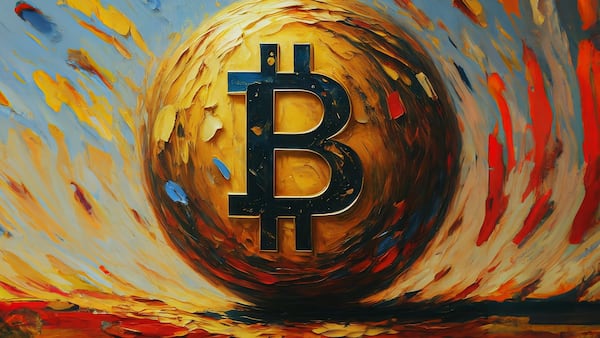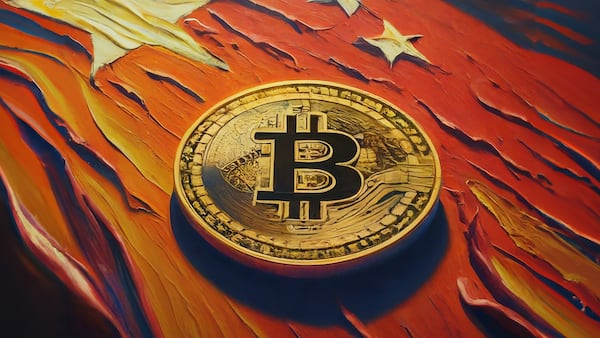- In an exclusive interview, CEO Jamil Nazarali says the crypto exchange plans to offer Bitcoin derivatives.
- CEO says Wall Street-backed exchange plans to offer perpetual futures.
- The move means EDX will compete with BitMEX and OKX.
In a move to capture more institutional investors, EDX Markets, the new crypto exchange backed by Wall Street giants, is planning to establish a “substantial footprint” in Singapore this year, CEO Jamil Nazarali told DL News in an interview this week.
The exchange, which is backed by Fidelity Digital Assets, Citadel Securities, and Charles Schwab, also plans on pushing into the crypto derivatives market.
Derivatives such as Bitcoin and Ethereum futures contracts account for almost three-quarters of the total crypto market, according to CCData. With the approval of spot price Bitcoin exchange-traded funds in the US in January, derivatives trading volume surged more than 35%.
Yet Nazarali said it’s difficult to play in that marketplace from a US base.
“If we move outside of the US, the list of tokens that we can trade is much larger because of the greater regulatory clarity outside of the US,” he added. “We do think that the size of the opportunity is much larger outside of the US than it is inside the US.”
Perpetuals
To be sure, crypto derivatives are a robust market in the US. CME Group, which introduced Bitcoin futures contracts in 2017, executes about $4 billion a day in trades.
Nazarali said a Singapore-based exchange will open the door for offering perpetual futures, a popular derivative form of crypto assets that typically uses leverage to maximise returns.
The contracts allow investors to bet on the future prices of Bitcoin and other assets and automatically rollover their investments when their terms expire.
“That’s something we can’t do in the US,” Nazarali said.
BitMEX and OKX, both of which operate out of Asia, have built major franchises in the crypto derivatives space, and Binance plays there, too. They will become EDX’s new competitors.
Regulatory approval
Nazarali praised Singapore’s strong regulatory framework, its position as a global financial capital, and supply of talent.
EDX plans to receive full regulatory approval from the Monetary Authority of Singapore within the next 18 to 24 months.
“One of the things that [clients are] particularly interested in is for us to launch an international exchange so that they are able to do some of their trading that they can’t do on our US marketplace,” he said.
In the US, EDX currently offers only three different coins for trading: Bitcoin, Ether and Litecoin. The list is narrow, Nazarali said, due to “a lot of regulatory uncertainty in the US over which cryptocurrencies are securities and which are not.”
‘Regulatory conservatism’
EDX’s expansion is yet another sign that Wall Street is keen on taking a bigger role in crypto. But Nazarali said that “regulatory conservatism” had delayed the entry of many institutional investors into the crypto markets.
Part of the issue is that exchanges in the crypto space function very differently to the traditional exchanges used by institutional investors. The former require investors to keep their assets in the exchange, and have slower technology.
“Many traditional finance firms had concerns about the existing exchanges long before FTX went out of business and long before the actions against Binance,” he said.
The idea behind EDX, he said, was for traditional investors to come together and start a new, “trusted” exchange that would be “institutional only [and] that would look and feel a lot like exchanges in traditional finance.”
“What we’ve heard from a lot of our institutional customers [in Asia] is that they don’t like the existing alternatives that they currently trade on, but that those exchanges have a lot of liquidity,” Nazarali said.
“They’ve told us that if we can build a critical mass of liquidity, they would rather trade on EDX because of who we are and who our backers are.”
He added that there is also a “very, very strong” demand for non-custodial crypto exchanges. He pointed to the launch last November of the Binance Web3 Wallet, a non-custodial wallet that interfaces with the Binance app.
“The fact that Binance did that is, I think, a recognition of this idea that a substantial number of institutional customers do not want to custody assets on Binance,” he said.
With reporting assistance from Adam Morgan McCarthy.
Callan Quinn is DL News’ Hong Kong correspondent. Have a tip? Contact the author at callan@dlnews.com.




